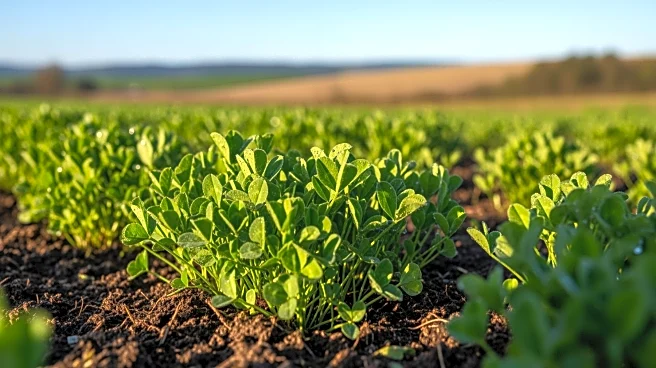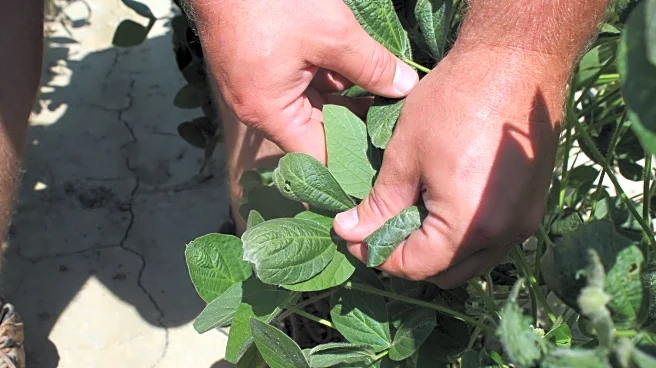What's Happening?
Iowa State University (ISU) is spearheading research into perennial ground cover (PGC) systems as a sustainable agricultural practice in the Midwest. Led by agronomy professor Ken Moore, the initiative aims to provide long-term benefits such as soil erosion
prevention, nutrient management, and weed suppression. The PGC system involves planting a ground cover once, which then offers benefits over multiple years, reducing costs and time compared to annual cover crops. A study from 2024 suggests that adopting PGC systems in large-scale corn and soybean farms could increase net returns by $83 per acre by the second year. The research, supported by USDA funding, is part of a broader project called RegenPGC, involving multiple partners including Corteva and The Land Institute. The project is testing various perennial candidates, such as a hybrid cultivar of bluegrass, to enhance soil structure and water infiltration while minimizing competition with grain crops.
Why It's Important?
The development of perennial cover crops represents a significant advancement in sustainable agriculture, particularly in the Midwest, where continuous cropping with corn and soybeans is prevalent. By reducing the need for annual seeding and termination, PGC systems can lower operational costs and improve environmental outcomes. This approach addresses critical issues such as soil erosion and nutrient runoff, which are major concerns in conventional farming. The potential increase in net returns per acre could incentivize more farmers to adopt these practices, leading to widespread environmental and economic benefits. Additionally, the collaboration between ISU, Corteva, and other partners highlights the importance of interdisciplinary efforts in advancing agricultural innovation.
What's Next?
The RegenPGC project is set to continue its trials across six states, with plans to expand field trials to more farmers and acres. Researchers are focused on refining best practices to minimize crop competition and maximize yield potential. Corteva is working on developing corn and soybean hybrids with low sensitivity to grass competition, aiming to achieve yield parity for PGC-grown crops. As the project progresses, stakeholders will likely monitor the economic and environmental impacts closely, potentially influencing future agricultural policies and practices in the region.
Beyond the Headlines
The adoption of perennial cover crops could lead to a paradigm shift in Midwest agriculture, promoting long-term sustainability and resilience against climate change. By enhancing soil health and reducing dependency on chemical inputs, PGC systems align with broader environmental goals. The research also underscores the role of innovation in addressing agricultural challenges, paving the way for more sustainable farming practices that could be replicated in other regions facing similar issues.

















